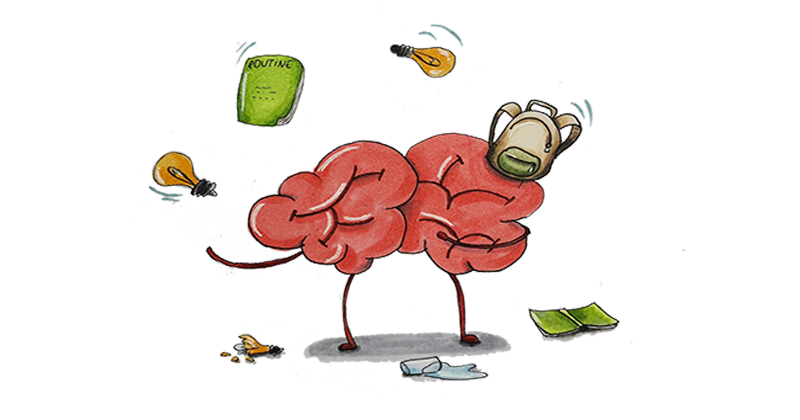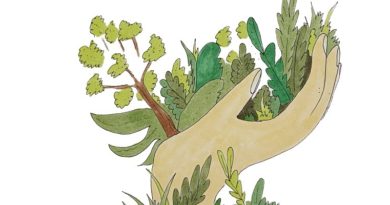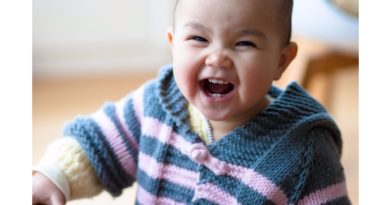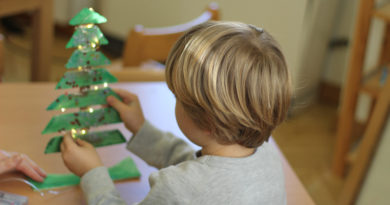Coping with Change at Home and at School
Most international families find they can handle a certain amount of change in life and become experts at planning house moves and even country moves, but too much change at one time is overwhelming. It is the same in most teams and organizations, and schools are no exception. Schools are often bastions for traditions and rituals that create collective experiences for change, such as when a group will move to a new class or teacher. So how do individual children learn how to cope with change? In this Education column, we’ll consider what helps our children do just that.
Flexibility is my middle name – or was,until I moved abroad. With a four-month-old baby, an empty farmhouse flat outside Bern, and a car, it suddenly felt important to make my life less flexible as soon as possible. Buying furniture inevitably committed us to staying in one place – a place called “home.” I established a near-religious daily routine that would remain as regular as possible despite the challenges intrinsic to early childhood. Soon these routines enabled our lives to revolve around the next highest priority after our baby, which was getting a good night’s sleep! Even once I returned to work, I was watching the clock every day, come rain or shine. Whatever our plans at the weekend, the practical demands of our first years as a new family took centre stage over flexibility, and I began to appreciate the headspace one gets from a settled and sometimes even rigid routine.
Once we get beyond these early years, parents discover that almost as soon as a child has grown into a phase of development, they are growing out of it again. The routines need to change, but they still revolve somewhat inevitably around the children. These days we try to constantly adapt to our children or at least acknowledge child-centredness as far as we can. Gone are the days when most parents expected their children to do all the adapting; in many ways, children have never been more indulged and might, as a result, not learn how to be as flexible as we would like. As they get older, our kids will often resist change just when we think they should learn it. Try changing the normal pizza order or adopting a new, healthy breakfast regime with teenagers in the household.
Parents with specialist jobs might also have trouble re-thinking a problem. In some kinds of work, expertise seems to mitigate against changing how we think. The more of an expert we are in something, the more certain we are of our opinions. Researchers in the field of experimental psychology concur: expertise makes us more conservative. In an industry alongside hundreds of other experts, individual professionals evolve their own approaches and concepts and have history and experience to back them up. Even if we have a desire to keep learning, scanning professional journals and learning about new methods does not often lead to changing our fundamental approach to excellence in our field, even if we decide to give a different slant to our opinions and practice over time.
Similarly, in schools, most recognised curricular frameworks aim to concentrate the young mind by using tried-and-tested teaching methodologies. Imparting a knowledge base (in order to have the material to think about a problem in a different way) requires a teacher to not deviate from the methodologies of the foundations of learning. However, education includes skills training, and teachers can promote problem-solving every time something unexpected happens in a group. Socially, too, teachers have to incorporate change. Welcoming new children to the class in the middle of a year is just one example of a situation that will automatically create the need to incorporate change. The new child does not know the rules; the teacher has to make exceptions, and suddenly what would seem unfair at other times makes complete sense.
Once children in primary schools can use their knowledge and experience to have more advanced discussions, I never tire of hearing what they think. Conversations about real-life events quickly verge on the imaginary and stage-relevant interests, such as natural disasters, TV programmes about stars, and stories children are reading. These provide opportunities to practice flexible thinking about the unknown, as yet un-lived, or virtual worlds that children are exposed to, as well as their direct experiences. In class, provided cultural reference points are understood by all, not just in maths but also in history, literature, and geography, opportunities for problem-solving present themselves throughout the week. Asking “what if” questions can create interaction among language, knowledge, and experience, which are the building blocks of all thought processes.
At home, a stable family life, perhaps with a regular meal together, fosters being able to muse on current events and contemplate any coming changes. Nevertheless, life gets busy, and therefore building in preparation time to talk about upcoming change is essential before a house move or a new baby. Finding a regular time in the week to “put your heads together” can also be helpful, especially if people in the same household have different daily routines and mealtimes. In my childhood, we drifted towards the kitchen on Sundays at tea-time, a no-fuss occasion with snacks from packets, biscuits, and tea or juice. It wasn’t planned; we would simply gather if we wanted to take stock of the state of the world, share events and our views on news from the week, and talk about people we knew or something we had learnt. This was a moment to discuss what it all meant or to focus our minds collectively on a problem and plan what the next step might be. Somehow, our mother or both parents were always there at that time in the week, year after year.
By Monica Shah
Monica is the founder of Children First Association, a non-profit bilingual Vereinsupporting international families in Zurich since 2006. Children First offers classes for children up to age seven, a day nursery ages zero to two, Montessori pre-school for ages two to four and a private kindergarten for ages four to six. She has also opened fit4school Zürichberg, a new tutoring centre for students in Swiss schools, ages seven to 18.
Illustration by Aleksandra Koroleva
Aleksandra, originally from Moscow, Russia, now lives in Adliswil with her husband and 3.5-year-old son. She specializes in clinical psychology and started studying illustration after her son’s birth. In her free time Aleksandra likes sleeping, just as all mothers do. https://www.instagram.com/uber_evil




